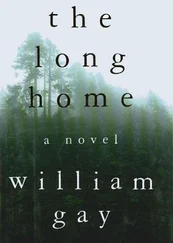William Shaw - She's leaving home
Здесь есть возможность читать онлайн «William Shaw - She's leaving home» весь текст электронной книги совершенно бесплатно (целиком полную версию без сокращений). В некоторых случаях можно слушать аудио, скачать через торрент в формате fb2 и присутствует краткое содержание. Год выпуска: 2014, Издательство: Little, Brown and Company, Жанр: Полицейский детектив, на английском языке. Описание произведения, (предисловие) а так же отзывы посетителей доступны на портале библиотеки ЛибКат.
- Название:She's leaving home
- Автор:
- Издательство:Little, Brown and Company
- Жанр:
- Год:2014
- ISBN:нет данных
- Рейтинг книги:4 / 5. Голосов: 1
-
Избранное:Добавить в избранное
- Отзывы:
-
Ваша оценка:
- 80
- 1
- 2
- 3
- 4
- 5
She's leaving home: краткое содержание, описание и аннотация
Предлагаем к чтению аннотацию, описание, краткое содержание или предисловие (зависит от того, что написал сам автор книги «She's leaving home»). Если вы не нашли необходимую информацию о книге — напишите в комментариях, мы постараемся отыскать её.
She's leaving home — читать онлайн бесплатно полную книгу (весь текст) целиком
Ниже представлен текст книги, разбитый по страницам. Система сохранения места последней прочитанной страницы, позволяет с удобством читать онлайн бесплатно книгу «She's leaving home», без необходимости каждый раз заново искать на чём Вы остановились. Поставьте закладку, и сможете в любой момент перейти на страницу, на которой закончили чтение.
Интервал:
Закладка:
William Shaw
She's Leaving Home
One
Why didn’t you go when I told you, before we left the house?” The question is aimed at a small, short-trousered boy, moving angrily down the pavement. Nanny, hair wild in the October wind, drives the huge Silver Cross pram with her right hand and drags the little boy along the pavement with the left. Baby has abandoned Nee-Noo, her felt elephant, and is grizzling under the yellow blanket. They had gone to the park. None of the other nannies had been there. It was too cold, but the children’s mother insisted they go for a walk every morning before their elevenses. Mother believed in fresh air and exercise, though she herself preferred to stay home, sucking Park Drives and talking for hours and hours on the phone like it doesn’t cost anything and playing patience.
“I told you to go, didn’t I?” Nanny struggles onward, crab-fashion, each arm extended, one pushing, the other pulling. “Didn’t I?”
“I didn’t want to go when you said.”
Nanny is dressed in the ugly navy cape she hates. Her shoes are black tasseled loafers that should only be worn by grannies. Makeup is not permitted. Skirts below the knee. And as for the daddy. Wandering hands.
The boy already has the assurance of one who appears to know that Nanny is just a paid employee. Three pounds ten a week plus board and can be treated as such.
“I need to go now.” The boy’s consonants are clear and clipped. He comes from stock that believes that giving orders requires plainness of speech.
“Can’t you just hold it?” demands Nanny. The first leaves of autumn blow past the three of them. “Just for five little minutes?”
The boy considers for a second, then answers simply, “No.”
“Show me what a strong boy you are.”
“I am a strong boy but I need to wee-wee,” he says in a voice too deep for one his age.
Nanny wishes she was better at this. She is young and inexperienced. She took the job to escape life in the English provinces. Imagining Carnaby Street, she got St. John’s Wood and a small, spoiled boy who wears a blazer, woolen shorts and garters on his socks, and a father who wants to grasp her bum when the boy’s mother is not looking. Homesick and lonely, the seventeen-year-old’s only pleasure is her nights listening to Radio Luxembourg. The radio tells her there are more people like her somewhere in England and that stops her from going mad. Last night the disc jockey played “Fire” by The Crazy World of Arthur Brown and she wished her world was crazy like that, that the whole world would burst into flames.
They give her Sundays off, and what’s the point of that? Nothing happens on Sundays. She went down Kensington on her last day off just to look at all the clothes in the dark windows of the shops. She couldn’t have afforded any of what they sold anyway. She daydreams that David Bailey is going to spot her, dress her up in beautiful clothes to take her photograph and make her famous, but no one’s going to notice her looking like a middle-aged witch.
London just means she’s more aware of everything that’s happening out of her reach.
“What are you singing? It sounds horrid. Stop singing.”
Had she been singing? It was probably that Arthur Brown song going round in her head. She decides to try to ignore the boy, pushing onward up the pavement. She notices, under her yellow cotton blanket, Baby beginning to cry. It is almost feeding time.
“You were singing your pop music. Pop music is a horrid noise.” He parrots his mother.
In the Soviet Union, they say, pop music is banned. Brezhnev will send you to Siberia for listening to it. The same in Spain and Greece. Only they just lock you up there. And pull your fingernails out. And you’re not allowed to wear miniskirts either. Mother just bangs on the door when she plays hers and tells her to stop that degenerate swill. If all the teenagers in England got together they could kill everyone over thirty. Everyone old should die. Even her dad. She wouldn’t care. Were those black berries on the hedge she was dragging the boy past poisonous?
“I need to go.” The boy pipes up again. It is so inconvenient of him. In this part of London you can’t just wee anywhere. The young nanny looks around, wondering if she could knock on one of the doors of the white-painted houses with the posh cars parked outside and ask to use their WC. But she is shy and unsure of herself.
“I’m going to wet my shorts,” the boy announces. “I really am.”
Mummy, Baby and Alasdair have elevenses together before Mummy’s mah-jongg and sherry session with her friends. It would not do to arrive back home with him wet. She grabs the boy’s hand tighter. “This way,” she says, yanking little Alasdair determinedly halfway across Hall Road.
“Ow. You’re hurting me.”
“No I’m not. Hurry.”
She is tired and angry. The place she has chosen to cross is a poor one. It is on a slight curve of the main road. She cannot see the traffic coming towards them from the north.
“Quick,” says Nanny, now halfway across and beginning to realize the danger. But the little boy in gray shorts and jacket is fiercely strong, pulling against her as she tries to maneuver her two charges across the remaining tarmac.
In this absurd tug of war she is winning, but as she approaches the curb on the other side, the momentary concentration it takes to tip up the wheels of the enormous pram gives Alasdair the chance to slip her hand.
“Alasdair. Come here now!” she screams.
Alasdair ignores her and stands, arms folded, in the middle of the road.
“You stupid boy.” Nanny pushes the pram onto the safety of the pavement before lunging to grab Alasdair. The child leaps back further, grinning. Nyah-nyah.
Around the corner spins the inevitable black cab, doing at least forty, orange light on “For Hire.” Even at that speed, Nanny can see the horror on the cabbie’s face as he swerves, eyes wide.
On the tarmac, Alasdair is too shocked to move. He stands alone, face suddenly white, eyes wide.
The taxi skids to a halt thirty yards down the road near a red phone box. Luckily, he had been a good driver. He had kept control of the vehicle even when its wheels hit the curb and bounced back into the road. There is a second of absolute, total, world-stopped stillness before the driver’s window slides down, and the tweed-capped head emerges, craning backwards towards the teenage nanny who has now captured the wayward heir in her arms.
“You stupid fucking bint.” And then for emphasis, in a voice still tremulous with shock, the taxi driver shouts again: “You stupid stupid stupid fucking bint.”
“See what you did?” shouts Nanny. “See what you did?”
The boy’s lip is trembling. She turns left down a side street looking for privacy. He does not resist her now.
“Stupid boy.” If he were her younger brother she would have whacked him a good one by now.
A little way down the side street she has ducked down, she notices a smaller driveway to some flats behind. They are modern, built on a bombsite, and newer than the big Victorian houses on the main road, but their proportions are mean and ugly in comparison and already they have a neglected air. A piece of cardboard taped to the front door says Concierge bell not working . Even here it’s hoity-toity. Not caretaker, mind you. This is N.W.8. A row of small padlocked sheds stands on the left-hand side of the small entrance. Beyond that, down the short muddy pathway to where a few clotheslines crisscross an area of tarmac, there is a pile of rubbish. A rusting bicycle, sodden cardboard, an old stained mattress, springs emerging from the cotton.
She pulls the boy down the alley and looks to left and right and up at the net-curtained windows of the yellow-bricked flats. No one seems to be watching them.
Читать дальшеИнтервал:
Закладка:
Похожие книги на «She's leaving home»
Представляем Вашему вниманию похожие книги на «She's leaving home» списком для выбора. Мы отобрали схожую по названию и смыслу литературу в надежде предоставить читателям больше вариантов отыскать новые, интересные, ещё непрочитанные произведения.
Обсуждение, отзывы о книге «She's leaving home» и просто собственные мнения читателей. Оставьте ваши комментарии, напишите, что Вы думаете о произведении, его смысле или главных героях. Укажите что конкретно понравилось, а что нет, и почему Вы так считаете.












